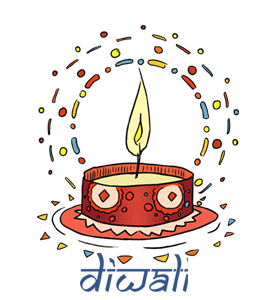Diwali/Deepavali
Diwali/Deepavali Quick Facts in India
| AKA Name | Deepaval, Festival of Lights, दीवाली/ दीपावली |
|---|---|
| HashtagsCompiled on | #Diwali, #HappyDiwali, #Diwali2024 |
| Related Hashtags | #DiwaliCelebration, #FestivalOfLights |
| 2024 Date | 31 October 2024 |
2024 Holidays & Dates - India
| India & Common Holidays | ||
| Misc. & Int'l. Observances | ||
| Jewish Holidays |
› | ||
